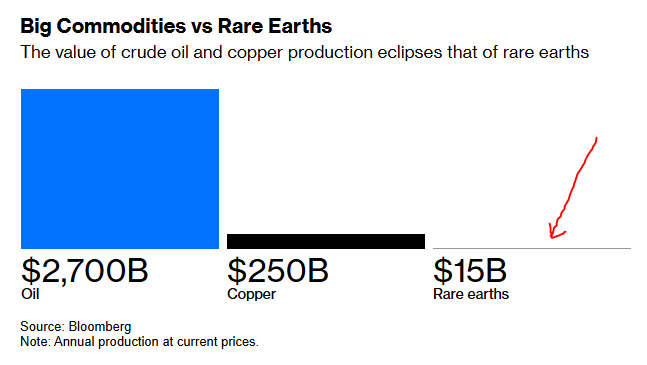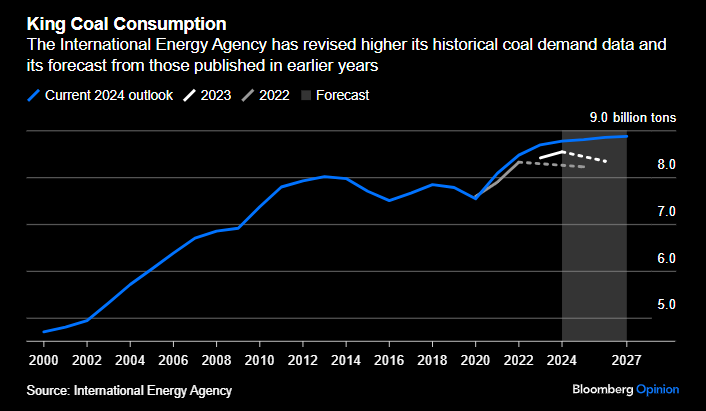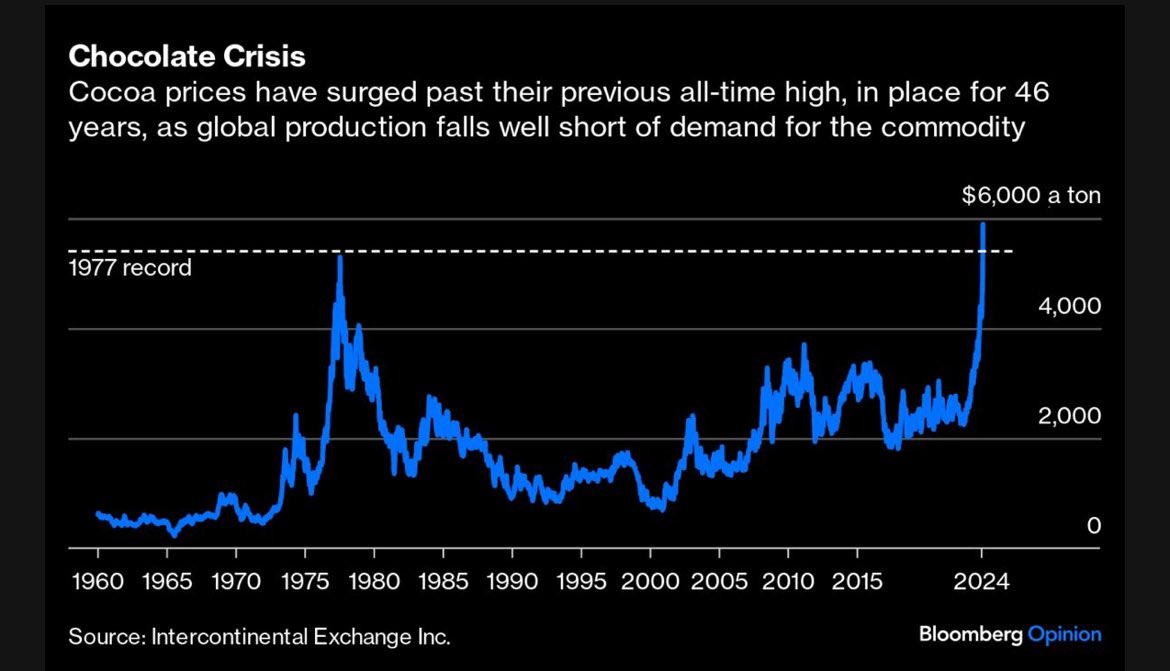COLUMN: What Ukraine has is scorched earth; what it doesn’t have is rare earths.
Surprisingly, many people — not least, US President Trump — seem convinced the country has a rich mineral endowment. It’s a folly.
[FREE TO READ]
@Opinion #Ukraine 🧵1/12
bloomberg.com/opinion/articl…
Surprisingly, many people — not least, US President Trump — seem convinced the country has a rich mineral endowment. It’s a folly.
[FREE TO READ]
@Opinion #Ukraine 🧵1/12
bloomberg.com/opinion/articl…
It's not the first time that the US has gotten its geology wrong in a war zone. Back in 2010, the US announced it had discovered $1 trillion of untapped mineral deposits in Afghanistan, including some crucial for electric-car batteries, like lithium. It was utter fantasy 🧵2/12
Back to Ukraine: there's not a single credible source that says that the country has significant reserves of rare earth elements (beyond some scandium). The @USGC in particular doesn't list Ukraine has having any reserves of the key 15 lanthanides rare earth elements 🧵3/12 

This folly started with the Ukrainians themselves, who talked up -- way, way up -- their mineral riches to US President t Trump to curry his favor. They lost control of their own narrative, and Trump, convinced of vast resources, went for a land grab 🧵4/12
So does Ukraine have some mineral riches? Yes. It does have large deposits of iron ore and coal, neither of which are strategically important from a global perspective. Before the war, Ukraine produced just a bit more iron ore that countries like the US, Canada and Sweden 🧵5/12
More interestingly, Ukraine has commercial deposits of two minerals often considered "critical": titanium and gallium. But then again, their value is small. Before the war, Ukraine accounted for ~6% of global titanium output, less than, for example, Mozambique 🧵6/12
In any case, Trump has emphatically talked about the "very valuable rare earths" the Ukrainians have. And he EVEN put a number: “I told them that I want the equivalent like $500 billion worth of rare earth.”
I don't know what on Earth he's talking about. It makes no sense.🧵7/12
I don't know what on Earth he's talking about. It makes no sense.🧵7/12
Let's start with the numbers. At best, the value of all the world’s rare-earth production rounds to $15 billion a year — emphasis on **a year**. That’s a fraction of the value of annual global oil or copper output.
The value of rare earths is always over-hyped 🧵8/12
The value of rare earths is always over-hyped 🧵8/12

But the key is that Ukraine doesn't have any commercial deposits. Every document someone has pointed out to me regurgitates the same conspiracy-theory claims found on the blogosphere. Terrible copy-and-paste without any geological or chemistry analysis 🧵9/12
Almost universally, the documents found online mistake (small) accumulations of some rare-earth-bearing minerals as equating with a commercial mine. They aren't the same. Not even close. And, in any case, Ukraine doesn't have many accumulations to start with. 🧵10/12
The worst of the pamphlets claiming Ukraine has a rare-earths cache bears the NATO imprint.
It shows zero knowledge, going as far as calling "rare earth metals" a list of minerals that aren't, including titanium, lithium, beryllium, manganese...
Complete BS. 🧵11/12
It shows zero knowledge, going as far as calling "rare earth metals" a list of minerals that aren't, including titanium, lithium, beryllium, manganese...
Complete BS. 🧵11/12

If that’s the source Trump’s advisers used to convince Trump of Ukraine’s rare-earth riches, it would be depressing — global politics based on copy-and-paste from conspiracy theory blogs morphed into a NATO-affiliated document. It would suit the Kafkaesque year of 2025 well 🧵12/12
• • •
Missing some Tweet in this thread? You can try to
force a refresh









